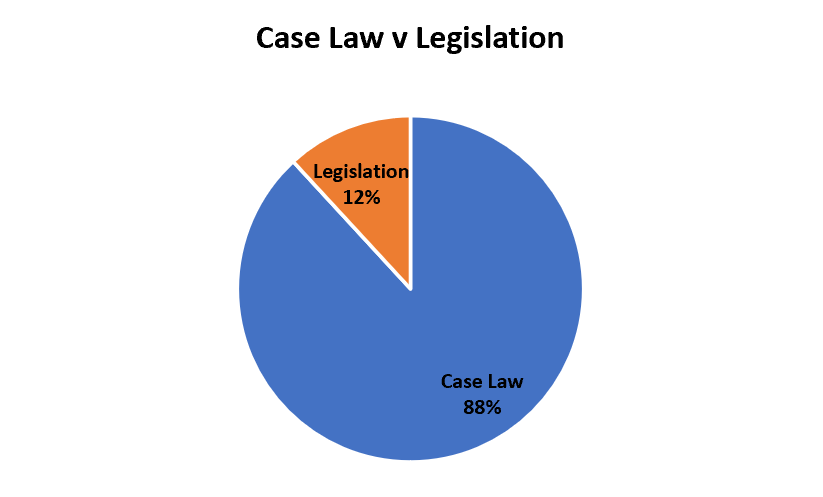Ontario College of Teachers v Allen, 2019 ONOCT 82
A decision heard before the discipline committee at the Ontario College of Teachers that held Allen guilty of unprofessional conduct, as opposed to disgraceful or dishonourable conduct. The parties submitted an agreed statement of facts and a guilty plea to the allegations of professional misconduct. The teacher was alleged to have hit a student, leaving a bruise and causing embarrassment, and abused a student psychologically or emotionally. The incident was reported to the police and the police did not lay charges, instead instructing the teacher that further incidents would lead to criminal charges. The committee considered mitigating and aggravating factors, suspending the member for one-month and anger-management courses.
Pelletier v. Delorme, 2019 FC 1487
This is an application for judicial review of two decisions made by a First Nation to adopt a new land management regime, and its monetary compensation amount for individuals affected by the changes. The land management regime introduced agriculture permits on reserve lands pursuant to subsection 28(2) of the Indian Act. Historically, and briefly speaking, the land was managed through a traditional land management system or through wills. These practices generally created disputes within the community and among families, including overlapping claims by some First Nations members. The First Nation introduced the land management regime with a “desire to create a system of land management that respected the collective interests of the [First Nations’] membership” (para 118). The band council resolutions, relied on by the applicants, granting the land have long since expired. The issues are as follows:
- Whether the application is time barred;
- Whether the respondents have jurisdiction to make the two decisions;
- Whether the applicants’ rights to procedural fairness were breached; and
- Whether the decisions were reasonable.
The decision held that the application was time barred but engaged in an analysis on the remaining decisions and held that the First Nation did have the jurisdiction to make the two decisions and that the applicants’ right to procedure fairness was not breached. On these two issues, the applicants did not provide any legal authority for the argument that the First Nation did not have the authority to make the two decisions; rather, their argument referred to procedural fairness. Further, the decision held that the land was set aside for the collective benefit for all First Nation’s members and that the two decisions were consistent with the band council’s responsibility under the Indian Act, including the band council’s fiduciary duty toward the membership and the discretion to grant or deny allotments. There was no responsibility toward a particular process; the band council could proceed as they see fit. The band proceeded through various notices and that any entitlement to procedural fairness was at the low end of the spectrum. In the end, the new land regime process was well-known to the applicants as a result of the details provided in their affidavits, and despite the errors in the process, any errors were resolved by the First Nation in a timely manner. The decisions made by the First Nations were reasonable, including protecting the interests of the applicants while balancing the interests of the community, among other things. Application dismissed.
Makwa Sahgaiehcan First Nation, 2019 SCTC 5
This is a complex decision for various claims filed under section 14(1) of the Specific Claims Tribunal Act or the “Grounds of a specific claim” provisions (see below). The hearing of the claim was divided into two separate stages, validity and compensation. This decision is the validity of the claim. There were various surrenders, takings, expansions or dispositions of reserve lands over a course of several years from 1932 to 1957, totalling 5 different claims. Three out of five claims were declared valid under the Act for the following:
- Crown breaching its fiduciary duties of loyalty, consultation and adequate consideration of the interest of the Band which ultimately tainted the dealing causing the transaction to be exploitative;
- Crown failing to protect the Band from alienation of the land resulting in a breach of duty to preserve and protect the Band’s interests from exploitation;
- Crown’s post-surrender breached its fiduciary duty by offering lots for sale at less than market value to settlers, despite the original taking of the surrender serving the interests of the Department of Indian of Indian Affairs (thus, original surrender not exploitative or improvident, but the post-surrender breach of duty is such).
The two claims that were declared invalid include an expansion wherein male members of the Band obstructed female members from exercising their vote under the Indian Act, and a disposition wherein there was no evidence of a statutory breach or breach of fiduciary duty.
The various claims were a result of settlers coming into the region and taking up land through squatting or trespassing. The Department of Indian Affairs facilitated the various transactions claimed under the Act under its various statutory or administrative powers at the time.
The alarming finding is the fact that the tribunal did not hold that male members preventing female members from voting as non-exploitative. The Indian Act has a long history of denying the rights of Indigenous women or preventing Indigenous women from accessing their rights. This is but one example. I invite others to review the decision to see the type of conduct that amounts to a breach versus acts that do not amount to an act.
Grounds of a specific claim
- 14 (1) Subject to sections 15 and 16, a First Nation may file with the Tribunal a claim based on any of the following grounds, for compensation for its losses arising from those grounds:
- (a) a failure to fulfil a legal obligation of the Crown to provide lands or other assets under a treaty or another agreement between the First Nation and the Crown;
- (b) a breach of a legal obligation of the Crown under the Indian Act or any other legislation — pertaining to Indians or lands reserved for Indians — of Canada or of a colony of Great Britain of which at least some portion now forms part of Canada;
- (c) a breach of a legal obligation arising from the Crown’s provision or non-provision of reserve lands, including unilateral undertakings that give rise to a fiduciary obligation at law, or its administration of reserve lands, Indian moneys or other assets of the First Nation;
- (d) an illegal lease or disposition by the Crown of reserve lands;
- (e) a failure to provide adequate compensation for reserve lands taken or damaged by the Crown or any of its agencies under legal authority; or
- (f) fraud by employees or agents of the Crown in connection with the acquisition, leasing or disposition of reserve lands.





